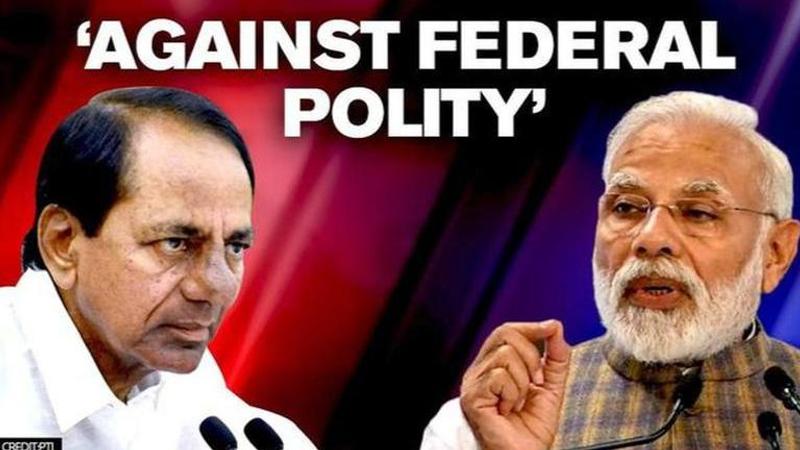Published 09:30 IST, June 3rd 2020
KCR writes to PM Modi on electricity act amendment, cites 'federal policy' violation
Citing 'adverse impact', Telangana Chief Minister KCR on Tuesday evening sent a letter to Prime Minister Narendra Modi and urged him to withdraw the amendments

Citing 'adverse impact', Telangana Chief Minister K Chandrashekar Rao on Tuesday evening sent a letter to Prime Minister Narendra Modi and urged him to withdraw proposed amendments to the Electricity Act. He said that it would have an adverse impact directly on the management of the State Electricity organisations. The Centre has asked the states to express their opinion on the proposed Draft Electricity Bill Amendment Act 2020.
In the letter sent to the Prime Minister, Rao said ."The proposed Electricity Amendment bill takes away certain functions/powers of the State Government. The provision to appoint State Electricity Regulatory Commission by a selection committee constituted by the Government of India and entrusting the responsibilities to a neighbouring State Electricity Regulatory Commissions under certain circumstances is hitting on the core of the Federal Polity, which is enshrined in the Constitution. Merely a particular subject is in the concurrent list of the Constitution does not mean that the Government of India/Parliament will enact laws that have a direct and major influence on the functioning of the State Government. We strongly oppose such a tendency."
The Chief Minister also added that any National Renewable Energy Policy should be formulated with the explicit consent of the State Governments,' but not merely in consultation with the State Governments.'
"Each State in India has its own unique situations like the potential for hydropower, wind power, solar power, land availability etc. As such, states should have the flexibility to determine within the broad policy at the national level without any penal provisions," it added. As per the proposed amendment bill, NLDC is made all-powerful with regard to the scheduling of power throughout the country," he noted.
In the letter, the Chief Minister highlighted that "the State Units will not be able to compete with Central Generating Stations. The cost of generation of Central Generation Utilities such as NTPC, NHPC etc will be less and get priority in merit order despatch causing loss to State generating companies. Therefore, intrastate transmission decisions should be left to the SLDCs only."
Rao said the draft bill also has a provision for the Direct Benefit Transfer (DBT) of subsidy provided to consumers, particularly to the agriculture and domestic sectors. This would work against the interest of farmers and very poor domestic consumers. "It has been the policy of the Telangana Government that the farmers should receive 2430 free power. Mode of payment of the subsidy should be left to the State Government. Any proposal to modify the current statute on this specific subject matter will be highly objectionable to our Government," it added. The proposed amendment bill "seeks to take away the functions of the State Government in constituting the State Electricity Regulatory Commission, which is against the spirit of the Federalism."
Centre's proposed amendments
On April 18, the Union power ministry proposed the fourth draft of the Electricity (Amendment) Bill since 2014, which sought to set up an Electricity Contract Enforcement Authority (ECEA). This body would have power of a civil court to settle disputes related to power purchase agreement between discoms and gencos. The draft provides that the ECEA will have sole authority to adjudicate matters related to specific performance of contracts related to purchase or sale of power, between power generation companies (gencos) and distribution companies (discoms). The decision of the ECEA can be challenged at the Appellate Tribunal For Electricity (APTEL) and, subsequently, at the Supreme Court. The ministry had sought the comments of the stakeholders on the Bill with three weeks from April 17.
(with PTI inputs)
Updated 09:30 IST, June 3rd 2020




